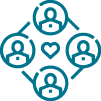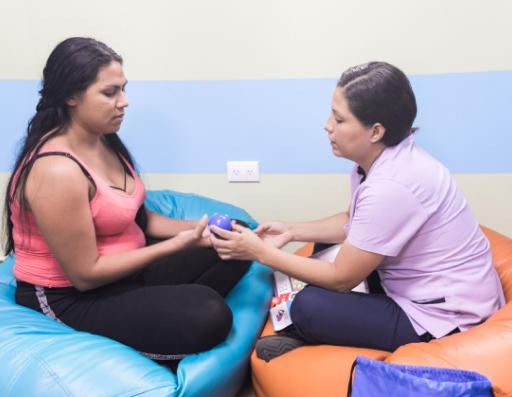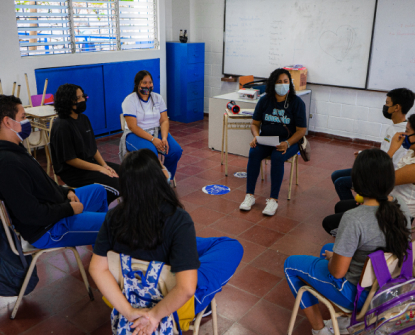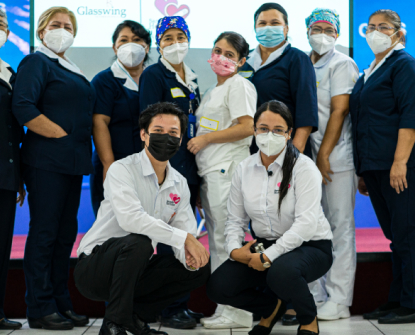Meet Elubia

Violence Prevention

Trauma-Informed Youth Development

Capacity building for Healthcare professionals

Forced Migration and Displacement
Glasswing International’s programs and methodology put mental health at the center of solutions to the most pressing challenges of our time. Our goal is to build trauma-informed, mental health ecosystems in partnership with educators, public health providers, law enforcement, and government and migration officials in order to increase access to critical mental health support. Our areas of expertise include:

Gender: Girls Programs and Positive Masculinities

Community Peacebuilding

Psychological First Aid for First Responders and Law Enforcement

Access to Safe Public Spaces
For years, Glasswing’s “Sanando Heridas” program, a violence prevention initiative, has helped people who have had exposure to social and interpersonal violence cope with the events through comprehensive trauma-informed care. A study by the World Bank Group found that survivors of violence who have been treated by a “Sanando Heridas” specialist trained in trauma-informed care reduce their likelihood of committing a violent act by up to 30%.




